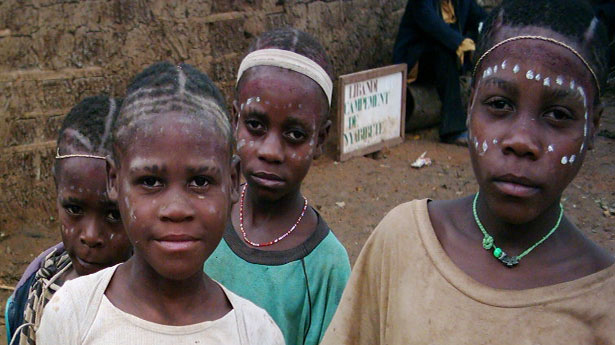By Julie Dugdale (@julie_dugdale)
If you’re like billions of people on the planet, you get up in the morning, go to work to provide for your family, and come home at night with something for dinner. Your picture might be framed a little differently, but the details boil down to the same thing: livelihood. A means of support or subsistence.
Now imagine your livelihood just…ends. Imagine that someone with more power and more money than you yanks away your occupation, your property, your food sources, and your access to medicine without asking what you think. Your entire means of survival vanishes. Now what?
For the indigenous people of central Africa, this scenario isn’t hypothetical. Numerous logging, mining, and agricultural companies have moved in pushing the indigenous hunter-gathers out of the world’s second largest rainforest. In the Congo Basin, spanning from the Central African Republic to Cameroon, the commercial interests of international companies often trump the rights of indigenous populations who depend on the forest for survival.
How Does This happen?
“There’s very little governance, oversight, or democratic process,” says Cameroon-based socio-economist Samuel Nnah Ndobe, a grant advisor to Global Greengrants’ International Financial Institutions advisory board. “There’s a few people with a lot of power, and a lot of foreigners controlling the resources. Mostly, the resources found in these countries are exported by those outside the countries.”
The local communities lose their way of life and have few ways to protest this. “These people—they have no voice,” Nnah says. “In agriculture and mining, there’s very little or no consultation with the people who are using that land. There’s no assessment to see what impact this is having on communities.” In fact, there are few, if any, repercussions these companies face for accidents. When a company spilled millions of gallons of oil in the region, the company involved is refusing all responsibilities—yet the local government is doing nothing.
Nnah was raised in a forested area of Cameroon, where he witnessed the burgeoning oil palm industry decimate his home forestlands, turning forest into palm oil plantation. “Oil palm is the new green gold,” Nnah says. “The demand for land for oil palm is escalating. It’s valuable as a food, because the oil can be used in almost anything. And with issues of climate change, there’s the need for [palm oil] as biofuel. It is one of the most-consumed oils in the world.” As this demand continues to grow so will land grabs in the Congo Basin.
Now What?
Indigenous groups are raising their voices. These groups are mobilizing throughout the Green Heart of Central Africa against international companies who are trying rob them of their livelihoods, traditions, and community. From providing legal support to education on international financial institutions, Global Greengrants is supporting local efforts to mobilize against powerful companies. Little by little, grant by grant, these voices are growing louder. No longer will these communities wonder if they will continue to provide for their families. They know they can for many years to come.

